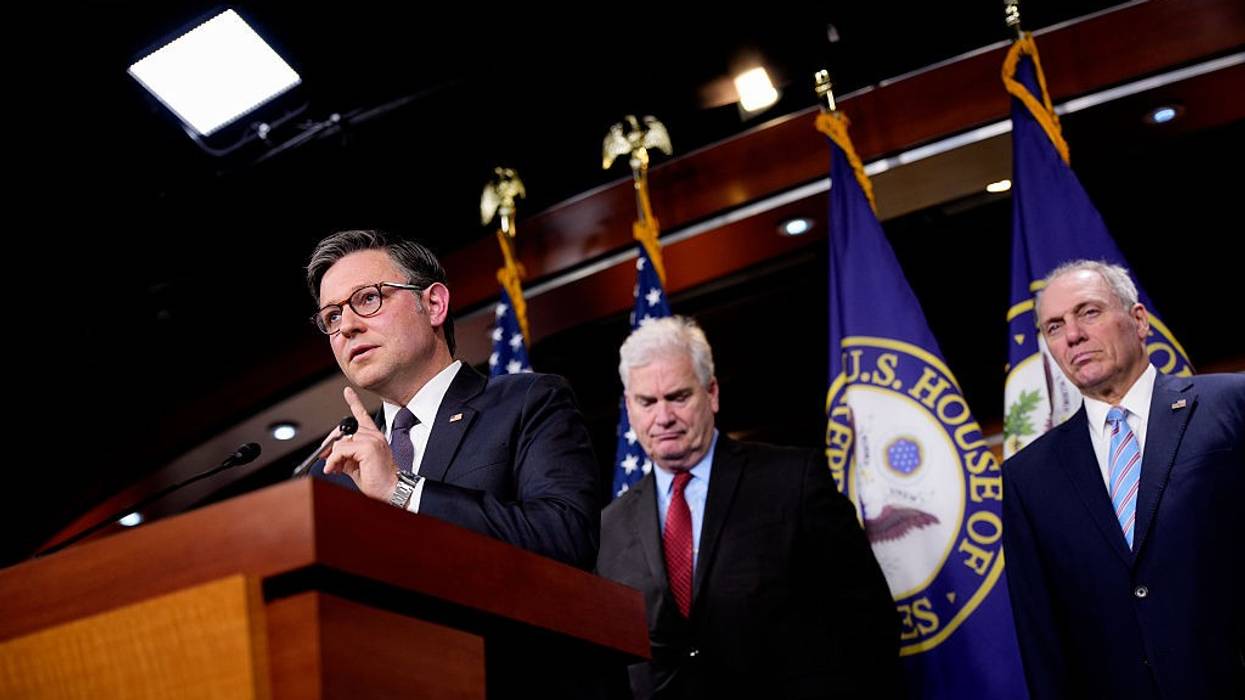If hope is to survive these dark and dangerous times, the scattered majority cannot afford to lose its democratic voice. The spirit of First Amendment guarantees of freedom of speech and freedom of the press, of the right to assemble peacefully, to protest, and to hold government accountable is a commitment to deliberation and nonviolent dissent as the lifeblood of democratic citizenship. Confronted with government intimidation and coercion, citizens who would, in the language of the First Amendment, “petition the Government for a redress of grievances” must weigh the consequences of silence relative to the costs of voicing criticism, and they must pragmatically consider whom to address, what to say, and how to say it. When and where to speak are less essential questions in a digital world where nearly anything said can be retrieved, decontextualized, and disciplined.
One can hope that democracy will bounce back...
Democratic dissent is rapidly becoming a fugitive practice. Fugitive democracy, in the late Sheldon Wolin’s terms, is “the best hope for a democratic revival” in exigent circumstances. It is necessarily an episodic intervention “in the service of commonality.” To become a small-d democrat, he maintains, is “to learn how to act collectively” as “democratic citizenries,” which requires going public, thereby helping “to constitute a ‘public’ and an ‘open’ politics.” (Democracy Incorporated, pp. 287, 289-90).
Deliberative democratic dissent (deliberative dissent for short) refers here to a hybrid political discourse that enacts democracy by objecting strongly to a perceived injustice in order to promote public deliberation and hold governing power accountable. It serves as a prompt to consider the reasons for and against a challenged measure, rule, policy, law, practice, or proposal, that is, to open debate and decision-making to public scrutiny, privileging nonviolence and persuasion in support of collective self-rule. The deliberative hybrid of dissent is realized most fully in discursive forms of speaking and writing, such as a speech delivered at a political rally or in a deliberative body, or an editorial or commentary published in a newspaper, magazine, or blog.
As a fugitive act against authoritarian rule, the challenge and the risk of engaging in deliberative democratic dissent necessitates careful consideration of how it is enacted, that is, how to cultivate a public prudently. Mitigating risk—short of eliminating it, for there is always a degree of risk when speaking publicly—is constructive. Speaking not only of democratic principles but in those principled ways contributes to the formation of a public confronting the emergence of an authoritarian juggernaut. Moreover, it advances democratic principles and practices in a manner harder to assail as radical, hateful, unpatriotic, conspiratorial, vengeful, violent, criminal, and otherwise alien.
Speaking of and in democratic terms is a gesture of affirmation, one of the two gestures essential to deliberative dissent. The other essential gesture is one of opposition. A gesture of affirmation locates the argument and its intended audience at a point of shared perception, opinion, attitude, or value. It identifies the speaker with the listener and claims shared convictions. The gesture of opposition locates a point of negation, disagreement, and disapproval resistant to a political or governmental posture, proposal, practice, or policy. The two gestures complement one another to constitute a statement of what one is for and against, consistent with democratic principles.
By way of brief example, both gestures were evident and intertwined when Illinois Governor JB Pritzker spoke out on August 25 against Trump’s developing plan to occupy Chicago with military troops, supposedly to fight crime. The governor’s gesture of opposition and disapproval took various forms. Among them, he insisted “there is no emergency in Chicago that calls for armed military intervention,” and he then proceeded to elaborate on this point of disagreement with the Trump administration.
Pritzker reinforced the significance of his objection by interweaving a gesture of affirmation grounded in democratic principles that would be violated by a military intervention. The planned action, Pritzker insisted, is an illegal, unconstitutional, un-American invasion of the city for partisan gain. “This is not a time to fall back into the reflexive crouch that I so often see,” Pritzker warned, “where the authoritarian creep by this administration is ignored.” The public is asked to stand up for democracy over authoritarianism.
Enacting the double gesture of deliberative dissent is a principled and politically pragmatic way of reconstituting a democratic public. It sets in motion myriad ways of revivifying the nation’s democratic heritage and reframes present struggles in terms of democratic aspirations. It is a corrective to the downward spiral of a discourse of recrimination. It is dissent in a constructive voice, avoiding pitfalls while building a dynamic community that respects diversity, safeguards freedom, upholds equality, privileges the rule of law, seeks justice, conducts free and fair elections, and pursues the common good.
Enacting the double gesture of deliberative dissent is a principled and politically pragmatic way of reconstituting a democratic public.
William Connolly’s Aspirational Fascism (2017) draws on the principles of pluralism and egalitarianism to resist Trump’s endangerment of democracy. A politics of egalitarianism, he argues, is “the best available antidote to aspirational fascism.” Egalitarianism is relational, an engagement that traverses pluralism’s diversity—a diversity that includes working and middle classes, environmentalists, ethnic and racial minorities, and gender and sexual orientation communities among others—by articulating “agonistic respect across intersecting [and interdependent] constituencies” with a “focus on the question of equality.” Developing an egalitarian agenda is necessary “to recapture a [larger segment of a working-class] constituency that has been pulling away from pluralism,” he maintains. Doing so offers the best chance of drawing together disaffected citizenries, for “you cannot secure democratic pluralism unless and until its active supporters also become profoundly committed to reducing significantly class inequalities of income, job security, educational opportunity, retirement prospects, wealth, and conditions of work” (pp. xlii, 86, 97, 99, 105-6). Thus, Connolly develops a detailed agenda that aims to pull together and broaden a coalition of progressives.
Whether or not Connolly’s particular vision of a coalitional agenda gains traction in the current political crisis, it illustrates a process of constructing a positive defense of democracy in democratic terms. One might even ask if, through a similar process, an agenda could be constructed to bring progressives together with moderates on democratic grounds to blunt authoritarianism. In one configuration or another, exercising the democratic voice of deliberative dissent raises the prospect of forming a working coalition of the currently fragmented majority split along multiple fault lines. No one subset of a democratic public can achieve its aims alone, nor can it achieve everything it seeks in coalition with other subsets. But the collective public might advance together in sufficient numbers and on democratic terms in these exigent circumstances under a banner of intersecting interests and in the service of a commonality of citizenries to resist the authoritarian advance. One can hope.




